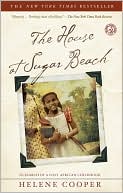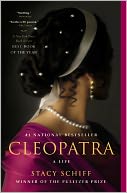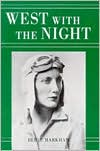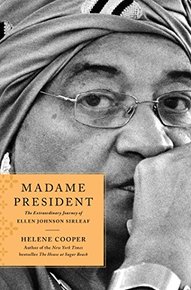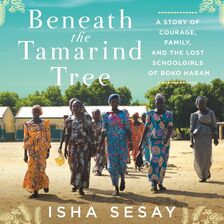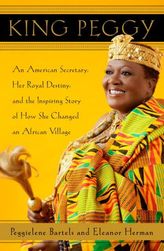
King Peggy: An American Secretary, Her Royal Destiny Peggielene Bartels 2012 |
Peggy Bartels was a Ghanaian-American woman, working a demanding secretarial job at the Ghanaian embassy in D.C. Separated from her husband, her life outside work was minimal. Then she got a middle-of-the-night call telling her that she'd been elected king of her ancestral village in Ghana -- a village she'd only visited a few times. Should she accept the offer? Well, of course she should and does, and thankfully we now have this wonderful memoir to read. Peggy saves up her money and goes back to visit her family in Ghana and be installed as king. Naturally she finds that much is not as it should be. And, as we readers expect (but some of the people back in Ghana don't), Peggy shakes things up. Humorous, touching, informative, and totally enjoyable. Reviewed by Silicon Valley Girl |
|
A House n the Sky
Amanda Lindhout and Sara Corbett 2014 |
This staggering, well written memoir runs the gamut from beauty and wonder to despair and depravity. We hear about the chaos and civil war in Somalia, mostly from afar and through the lens of piracy stories, but this book throws the whole thing into searing personal perspective in the tale of two travelers who were kidnapped and held for ransom by fundamentalist mercenaries. Amanda Lindhout's autobiographical tales of growing up in Canada and traveling to far-flung regions pre-Somalia are fascinating enough and extremely well rendered in crisp, engaging prose. But it's when her travels go disastrously, devastatingly wrong that this story kicks into high gear and your knuckles turn white as you turn page after heart-wrenching page. Of course, the author's survival of the many ordeals she was put through are a given, but they don't make the vividly told tale any less hair raising, as page after page you hope beyond hope that this will be the page in which she is set free. When she finally is, you would forgive the author for being a wrecked shell of a human being who retreats from the world in all of it's ugliness to lick her wounds. But instead, you learn that she has the compassion of a Buddha and is actually doing charitable work geared towards education women in Somalia. Amazing, amazing, amazing...
Reviewed by dawgdish "djjagdi" |
|
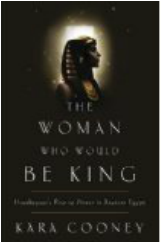
Hatshepsut—the daughter of a general who usurped Egypt's throne and a mother with ties to the previous dynasty—was born into a privileged position in the royal household, and she was expected to bear the sons who would legitimize the reign of her father’s family. Her failure to produce a male heir was ultimately the twist of fate that paved the way for her improbable rule as a cross-dressing king. At just over twenty, Hatshepsut ascended to the rank of pharaoh in an elaborate coronation ceremony that set the tone for her spectacular reign as co-regent with Thutmose III, the infant king whose mother Hatshepsut out-maneuvered for a seat on the throne. Hatshepsut was a master strategist, cloaking her political power plays in the veil of piety and sexual reinvention. Just as women today face obstacles from a society that equates authority with masculinity, Hatshepsut shrewdly operated the levers of power to emerge as Egypt's second female pharaoh.
Hatshepsut successfully negotiated a path from the royal nursery to the very pinnacle of authority, and her reign saw one of Ancient Egypt’s most prolific building periods. Scholars have long speculated as to why her monuments were destroyed within a few decades of her death, all but erasing evidence of her unprecedented rule. Constructing a rich narrative history using the artifacts that remain, noted Egyptologist Kara Cooney offers a remarkable interpretation of how The Woman Who Would Be King
Kara Cooney
2014 Hatshepsut rapidly but methodically consolidated power—and why she fell from public favor just as quickly. The Woman Who Would Be King traces the unconventional life of an almost-forgotten pharaoh and explores our complicated reactions to women in power.
Hatshepsut successfully negotiated a path from the royal nursery to the very pinnacle of authority, and her reign saw one of Ancient Egypt’s most prolific building periods. Scholars have long speculated as to why her monuments were destroyed within a few decades of her death, all but erasing evidence of her unprecedented rule. Constructing a rich narrative history using the artifacts that remain, noted Egyptologist Kara Cooney offers a remarkable interpretation of how The Woman Who Would Be King
Kara Cooney
2014 Hatshepsut rapidly but methodically consolidated power—and why she fell from public favor just as quickly. The Woman Who Would Be King traces the unconventional life of an almost-forgotten pharaoh and explores our complicated reactions to women in power.
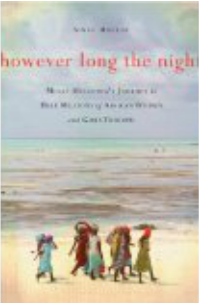
It has been a long time since I have been so moved by a book. Aimee Molloy's However Long the Night is a powerful biography focusing on the tireless efforts of Molly Melching who has worked for decades in Senegal to educate and improve the lives of the women and children of villages across the nation.
Melching originally traveled to Senegal as part of a graduate program study abroad, and was looking forward to learning about the culture and people. What she hadn't planned on was the cancellation of the program. After convincing the university to allow her to study, Melching couldn't help but fall in love with all that Senegal offered. Rather than returning home, however, Melching extends her stay and secures a position as an Peace Corps employee. She starts a school to teach the local children, focusing on them reading stories that reflect their own culture and language, rather than stories of European children who share little with their Senegalese peers. This venture quickly leads to another and before Melching knows it, she has embedded herself into the Senegal culture, learned the language, and established an NGO named Tostan to help educate the women and children of the nation. While she set out to improve the quality of life, it becomes apparent that one issue needs attention - that of FGC (female genital cutting). Remarkably, after much effort, and devoted educational efforts Melching and the women of the villages begin to notice a change in the FGC tradition. The women feel empowered, and slowly begin to convince others that a change is needed.
This powerful book is inspiring, engaging, and insightful. I read it in one sitting, fascinated that I had gone so long knowing so little about Melching and the FGC crisis in Senegal.
Reviewed by shelfish
Melching originally traveled to Senegal as part of a graduate program study abroad, and was looking forward to learning about the culture and people. What she hadn't planned on was the cancellation of the program. After convincing the university to allow her to study, Melching couldn't help but fall in love with all that Senegal offered. Rather than returning home, however, Melching extends her stay and secures a position as an Peace Corps employee. She starts a school to teach the local children, focusing on them reading stories that reflect their own culture and language, rather than stories of European children who share little with their Senegalese peers. This venture quickly leads to another and before Melching knows it, she has embedded herself into the Senegal culture, learned the language, and established an NGO named Tostan to help educate the women and children of the nation. While she set out to improve the quality of life, it becomes apparent that one issue needs attention - that of FGC (female genital cutting). Remarkably, after much effort, and devoted educational efforts Melching and the women of the villages begin to notice a change in the FGC tradition. The women feel empowered, and slowly begin to convince others that a change is needed.
This powerful book is inspiring, engaging, and insightful. I read it in one sitting, fascinated that I had gone so long knowing so little about Melching and the FGC crisis in Senegal.
Reviewed by shelfish
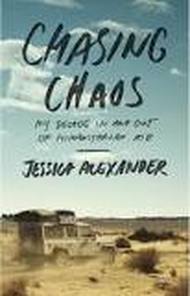
I've often wondered what draws people to save the world by traveling around the globe and offering aid to those in other countries. While it sounds xenophobic, I've often thought that with all the needs in our own nation, why go somewhere else and why would you think you can make a difference.
That's what led me to Chasing Chaos by Jessica Alexander. While I can't say that the book answers all of my questions, it does an excellent job in providing information and a personal experience that I found informative, thought-provoking and important. Ms. Alexander has spent considerable time in places in Africa, Haiti and other locales and has provided an excellent account and analysis of foreign aid and the world of NGOs, the U.N. and disaster recovery efforts.
Her description and re-telling of her time in Rwanda, Sierra Leone and Haiti were excellent and I feel much better informed after reading it. I recommend this book wholeheartedly. Ms. Alexander walks the lines between autobiographer, journalist and scholar in this book and the end product is exceptional
reviewed by John Staniford
That's what led me to Chasing Chaos by Jessica Alexander. While I can't say that the book answers all of my questions, it does an excellent job in providing information and a personal experience that I found informative, thought-provoking and important. Ms. Alexander has spent considerable time in places in Africa, Haiti and other locales and has provided an excellent account and analysis of foreign aid and the world of NGOs, the U.N. and disaster recovery efforts.
Her description and re-telling of her time in Rwanda, Sierra Leone and Haiti were excellent and I feel much better informed after reading it. I recommend this book wholeheartedly. Ms. Alexander walks the lines between autobiographer, journalist and scholar in this book and the end product is exceptional
reviewed by John Staniford
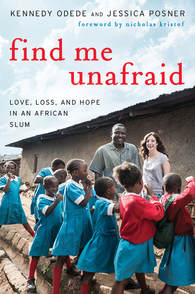
This book is a must-read. I have seldom (if ever) read a book that brought me to tears every few chapters. Kennedy's incredibly difficult life is a story in and of itself, but his ability to have hope in spite of all of the difficulties he faced is inspiring and uplifting. The flow of the book is marvelous as Kennedy and Jessica's stories are intertwined to come together into their wonderful dream. Facing a life of abject poverty in one of the largest slums in Kenya, Kennedy found faith in others that their lives could be changed. And when Jessica was added to the formula after a college semester abroad, they became the fantastic team that continues to move this wonderful organization forward. Block out some time to read this book, as it is very difficult to put down, as you wonder what else could happen to these two. Very well written. A delightful story in so many ways. Please read it!!
Reviewed by Ronald Hoffman
Reviewed by Ronald Hoffman
